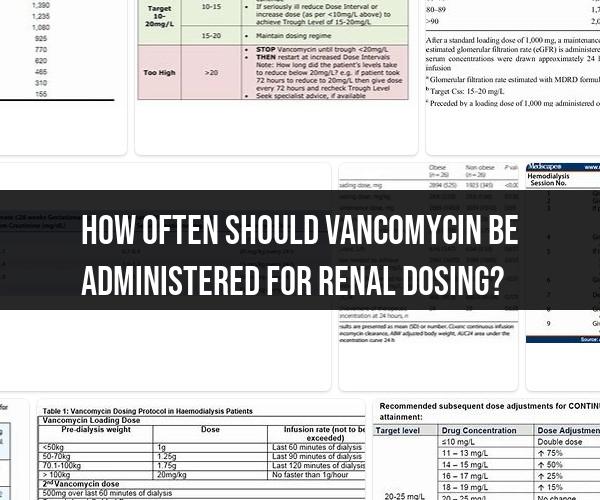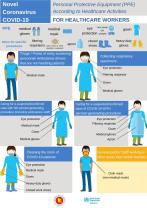How often should vancomycin be administered for renal dosing?
Vancomycin is an antibiotic commonly used to treat serious bacterial infections. Proper dosing of vancomycin is essential, especially for patients with renal impairment, as the drug is primarily excreted through the kidneys. Renal dosing is necessary to avoid potential toxicity or inadequate treatment.
Factors Affecting Vancomycin Dosage
Several factors influence the appropriate vancomycin dosage for a patient, including:
- Renal Function: The patient's kidney function, as assessed by the estimated glomerular filtration rate (eGFR) or serum creatinine levels, is a critical factor in determining the appropriate dose.
- Body Weight: The patient's weight is considered in determining the initial dose of vancomycin.
- Infection Severity: The seriousness and location of the infection influence the required vancomycin dose. Severe infections may require higher doses.
- Therapeutic Drug Monitoring: Vancomycin levels in the blood are periodically monitored to ensure therapeutic levels are achieved and to avoid toxicity.
Calculating Vancomycin Dosage for Renal Impairment
The most common method for calculating vancomycin dosage in patients with renal impairment is by adjusting the dosing interval based on the patient's estimated glomerular filtration rate (eGFR) or creatinine clearance (CrCl).
A common dosing regimen involves administering vancomycin as an intravenous (IV) infusion with a dosing interval based on the patient's eGFR:
- eGFR > 90 mL/min: Standard dosing (e.g., 15-20 mg/kg every 8-12 hours).
- eGFR 60-89 mL/min: Extended dosing interval (e.g., 15-20 mg/kg every 24 hours).
- eGFR 30-59 mL/min: Consider lower dose (e.g., 15-20 mg/kg every 48 hours) or extended dosing interval (e.g., 1,000 mg every 48 hours).
- eGFR < 30 mL/min or on hemodialysis: Consult a healthcare provider for specialized dosing.
Therapeutic Drug Monitoring (TDM)
To ensure the effectiveness and safety of vancomycin therapy, therapeutic drug monitoring (TDM) is often used. TDM involves measuring vancomycin levels in the blood to adjust the dose and maintain appropriate therapeutic levels. Peak and trough levels are monitored, and adjustments to the dosing regimen are made based on these measurements.
It is essential for healthcare providers to be cautious when prescribing vancomycin, especially in patients with renal impairment. Close monitoring and appropriate dosing adjustments are crucial to achieve optimal therapeutic outcomes while minimizing the risk of adverse effects.












